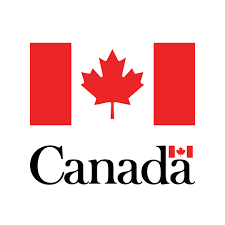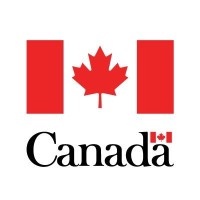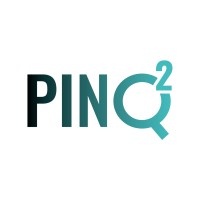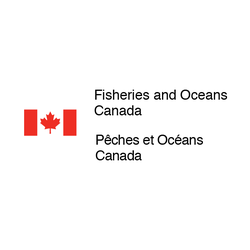
Closed
Idea to Innovation Grants
Last Update: October 27, 2025
Canada
Technology transfer opportunities
Grant and Funding
At a glance
Funding available
Financing goals
Integrate new technologies
Develop a new product
Research and experimental development
See more
Eligible Funding
- Maximum amount : 350,000 $
- Up to 75% of project cost
Timeline
- Closing date : September 22, 2025
Eligible candidates
Eligible Industries
- Professional, scientific and technical services
Location
- Canada
Legal structures
- For-profit business
Annual revenue
- All revenue ranges
Organisation size
- All organization sizes
Audience
- Canadians
- Startups
Overview
Get 100% of your project costs covered when you partner with an eligible academic institution to conduct R&D and beta testing of a technology or application prior to commercialization.
Activities funded
- Refinement and implementation of technology designs and concepts.
- Verification of new technological applications through field studies and demonstrations.
- Prototyping and testing of new products, processes, or services.
- Conducting impartial market assessments to evaluate commercial potential.
- Preparation and support for transferring technology from academic research to Canadian companies.
Examples of admissible projects:
$ 215,000
Creating prototypes for a smart home energy system
$ 200,000
Developing a novel eco-friendly packaging material
$ 215,000
Testing a new AI-driven healthcare application
Eligibility
- The partner company must be Canadian, or if based outside Canada, it must demonstrate clear and direct benefits to the Canadian economy from its participation.
- The partner company must have, or be able to acquire by project end, the technical and commercial capacity to develop, manufacture, or market the technology.
- In phase IIb projects, the company must be prepared to participate in project planning and undertake activities such as market studies, product/process development, and sales and marketing planning to establish the technology’s viability for market entry.
Who is eligible?
- Canadian companies with the capability or potential to commercialize new technology
- Early-stage investment entities (e.g., venture capital, seed capital, angel investors, university technology transfer corporations, incubators)
- Researcher-owned companies (subject to institutional policies and NSERC review)
- Companies outside Canada, only if they can demonstrate clear and direct benefits to the Canadian economy
Who is not eligible
This grant excludes certain companies and industries based on the context provided. The restrictions are intended to ensure alignment with the grant's focus on technology commercialization and partnership with academic institutions.
- Organizations that do not demonstrate a clear benefit to the Canadian economy.
- Entities that are not considered early-stage investment groups or companies capable of commercializing technology.
- Companies without the technical capability to develop the product or process to market.
Eligible expenses
- Consulting fees for market studies and business plan development.
- Expenses related to refining and implementing designs, including prototype construction and beta trials.
- Verification activities such as field studies and demonstration preparation.
- Recruitment-related expenses, including the salary for replacement faculty hired to backfill a college faculty member's role.
- Project management costs, up to 10% of total direct costs (for phase IIb).
- Patenting expenses and other costs associated with protecting intellectual property.
- Business mentoring fees from experienced entrepreneurs.
- Travel expenses directly associated with partnership or technology transfer activities.
Eligible geographic areas
- Canadian companies
Selection criteria
- Scientific and technical merit, including the clarity and focus of research objectives.
- Potential for technology transfer and commercial benefits for a Canadian company.
- Breadth and depth of team expertise and quality of project management.
- Quality and suitability of the technology transfer plan and anticipated benefits of NSERC financing.
- Evidence of market interest and appropriateness of primary research in market assessment applications.
How to apply
1
Preliminary Registration
- Create or access an account on the NSERC online system.
- Ensure all personal and institutional information is up-to-date.
2
Understand Eligibility and Guidelines
- Review the eligibility criteria and ensure compliance with all requirements for the specific phase (Market assessment, Phase I, Phase IIa, Phase IIb).
- Consult the Tri-agency guidance on sensitive technology research areas to understand future implications.
3
Prepare Application Documents
- Complete Form 100 – Personal Data Form for principal applicant and co-applicants.
- Complete Form 101 – Application for a Grant including detailed project proposal and budget.
- Fill out Form 183A (if applicable) for information from organizations in research partnerships.
- Develop a technology transfer plan outlining strategy and business plan if required.
- Obtain letters of support from potential partners or early-stage investors.
4
Institutional Collaboration
- Work closely with the institution's Industry Liaison Office (ILO) or equivalent to align commercialization plans.
- Ensure that any IP or licensing agreements are in place if required.
5
Application Submission
- Upload the completed forms and supplementary documents to the NSERC online application portal.
- Review all entries for completeness and accuracy before submission.
- Submit the application before the nearest deadline date ensuring all components are included.
6
Confirmation of Submission
- Receive an automated confirmation email acknowledging the submission of your application.
- Keep the confirmation email and assigned application number for your records.
Additional information
- Applicants must collaborate closely with their institution's Industry Liaison Office (ILO) or its equivalent when developing proposals.
- Each proposal is required to include a technology transfer plan appropriate to the technological maturity.
- NSERC may review draft proposals if submitted well in advance of the application deadline.
- Reports assessing practical and financial outcomes, with input from the technology transfer office, are required upon project completion.
Apply to this program
Frequently Asked Questions about the Idea to Innovation Grants Program
Here are answers to the most common questions about the Idea to Innovation Grants. This section explains what the program is, how much funding is available, eligibility requirements, application deadlines, and other important details to help you determine if this grant is right for your business.
What is the Idea to Innovation Grants?
How much funding can be received?
Who is eligible for the Idea to Innovation Grants program?
What expenses are eligible under Idea to Innovation Grants?
Who can I contact for more information about the Idea to Innovation Grants?
Where is the Idea to Innovation Grants available?
Is the Idea to Innovation Grants a grant, loan, or tax credit?
Apply to this program
More programs like this

Grant and FundingClosed
Industrial Research Assistance Program (IRAP) – AI Assist
National Research Council Canada (NRC)Supports Canadian SMEs in adopting and integrating advanced AI solutions

Wage Subsidies And InternsOpen
Industrial Research Assistance Program (IRAP) — Youth Employment Program (YEP)
National Research Council Canada (NRC)Money to hire a student

Researchers And FacilitiesPartnering and CollaborationWage Subsidies And InternsOpen
Mitacs Accelerate
MitacsConnect organizations with academia for research and innovation collaboration

Grant and FundingClosed
ISED — Artificial intelligence (AI)
Innovation, Science and Economic Development Canada (ISED)Supports testing innovative AI prototypes for Canadian government needs

Grant and FundingOpen
Global Innovation Clusters
Innovation CanadaFinancial assistance to work in collaboration on innovation projects

Grant and FundingOpen
IP for Business
Canadian Intellectual Property Office (CIPO)Intellectual property training, tools and expertise

Wage Subsidies And InternsOpen
ECO Canada — Student Work Placement Program
ECO CanadaMoney to hire students for an environmental co-op

Grant and FundingClosed
Enhanced Road Safety Transfer Payment Program (ERSTPP)
Transport Canada (TC)Funds projects to enhance road safety and reduce traffic injuries

Researchers And FacilitiesExpert AdviceOpen
Digital and Quantum Innovation Platform — PINQ²
Plateforme d'Innovation Numérique et QuantiqueGet expert advice and the use of a high-tech environment

Grant and FundingClosed
Canada Nature Fund for Aquatic Species at Risk (CNFASAR)
Fisheries and Oceans Canada (DFO)Supports recovery and protection of aquatic species at risk
Sign up to our platform to access the Idea to Innovation Grants information sheet for free
Get access to 4,000+ programs, practical guides, personalized alerts, and an AI assistant to support your grant applications.